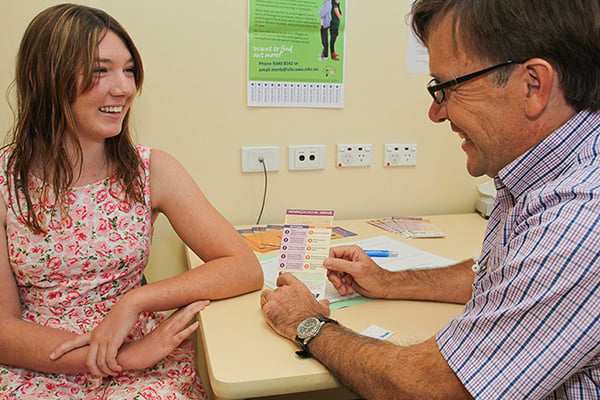Our research impact
- A series of Telethon Kids Institute studies looking at safety and persistence of protective antibody responses for Meningococcal ACWY vaccines in children has led the way for its use in Australia after a significant rise of W strain infections.
- Results have been available to help inform government policy at a critical time, allowing young people to be protected from Meningococcal W when they are most at risk.
- Meningococcal B vaccine studies in teenagers and young adults have contributed to the vaccines being licensed in Australia and overseas. A Men B vaccination program in South Australia is currently underway to examine the impact of immunising large community groups against the disease.
Meningococcal: A researcher's perspective
 As a young resident medical officer working in the Emergency Department at Princess Margaret Hospital, I can still remember the first time I diagnosed a young baby with meningococcal disease.
As a young resident medical officer working in the Emergency Department at Princess Margaret Hospital, I can still remember the first time I diagnosed a young baby with meningococcal disease.
What struck me was the rapid progression from being an unwell baby with a fever who was just starting to develop the typical bruising-type rash, to a severely unwell child needing life support in the Intensive Care Unit. Fortunately he survived and many years later I was lucky to meet the then teenager and his mother and reflect on what a close call it had been and the impact meningococcal disease had on their family.
The early signs of meningococcal disease were no different to the hundreds of other children we were seeing that winter with viral illnesses so I was always worried about missing the next case and often wondered why there were no vaccinations available for this terrible disease. There was no vaccine research happening in Australia but when I went to the UK a few years later, the Great Ormond St Hospital in London had been asked to run a trial of a new vaccine against the meningococcal C strain. This was the first time the vaccine had been given to humans and the first time I had run a clinical trial so it was a steep learning curve, particularly as there were no research nurses so I had to give all the vaccinations! Fortunately we had plenty of volunteers from hospital staff and the trial was a success. I was then asked to co-ordinate a research program evaluating the three meningococcal C vaccines available across the UK, and three years later this led to a national program for all children in the UK, followed by a similar program in Australia.
Both vaccination programs led to rapid elimination of disease caused by the deadly meningococcal C strain and showed me the power of vaccine research to have an immediate impact on the health of the population.
As it turned out, the meningococcal vaccine used in WA, including for my own four children, was the same vaccine that had started my career in meningococcal research.
My vision for the future is where we have a single vaccine that can protect babies, children and young adults against the five most common strains of meningococcal disease, and infections become so rare that training doctors will only read about it in textbooks rather than having to treat it in real life.